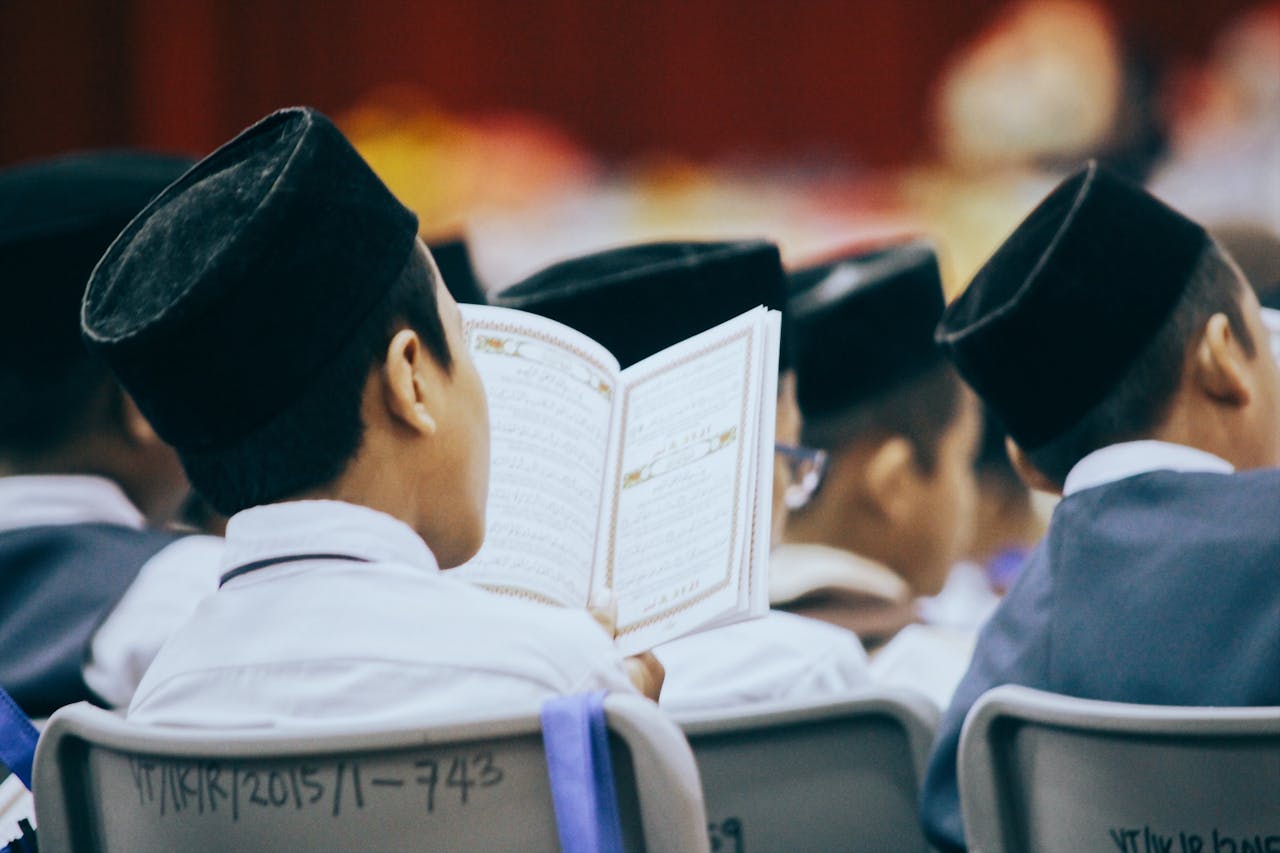‘Surely, Allah and His angels send blessings to the Prophet. O you who believe, do pray to Allah to bless him, and send your Salām (prayer for his being in peace) to him in abundance.’ (Surah Al Ahzab 33: 56)
Allah (SWT) commands us to send blessings (Salwaat) and peace (Salaam) upon the Prophet (SA). This is a means of not only expressing our reverence and appreciation for him in the best form possible for us, but it is also a means for us to gain the love of Allah (SWT) in this world and the next.
The best form of Salwaat- the Durood
The Durood taught to us as part of our daily prayers includes blessings on the Prophet Muhammad (SA) and his ‘Aal’ as well. The literal meaning of this word is ‘family,’ but it includes the entire Muslim Ummah- past, present, and future- for we are his figurative family.
Also, Durood mentions not just Prophet Muhammad (SA) but also Prophet Ibrahim (AS). He was the father of all monotheist divine religions Allah (SWT) revealed to the world. Prophet Ibrahim (AS) struggled and sacrificed all his life as a monotheist whom all People of the Book revere.
The Durood concludes with praise of Allah (SWT), for He is the Creator of these excellent examples whom we seek to emulate.
The Durood is the best form of sending Salwaat on the Prophet (SA). If you are reciting a shorter Salwaat, remember to include Salaam since the verse commands both. The Durood may be recited anytime, but the most significant time for sending Salwaat is Friday, including Friday.
Seven amazing virtues of sending Salwaat upon Prophet Muhammad (SA):
- We fulfill Allah’s (SWT) command: By reciting Salwaat and Salaam, we obey the commands given in the Holy Quran.
- We earn blessings: Prophet Muhammad (SA) said: ‘Whoever sends blessings upon me once, Allah (SWT) will send blessings upon him tenfold, and will erase ten evil deeds and raise him ten degrees.’ (An-Nasai) Therefore, by sending Salwaat upon Prophet Muhammad (SA), we do ourselves a favor by earning Allah’s (SWT) blessings, His forgiveness, and a station closer to Him.
- We earn intercession: Our beloved Muhammad (SA) said: ‘The closest people to me on the Day of Resurrection will be the ones who sent the most blessings upon me.’ (at-Tirmidhi) This means they will be most deserving of the Prophet’s (SA) intercession, leading to Allah’s (SWT) Mercy, enabling them to enter Jannah.
- We earn his greetings: The Prophet (SA) will return our greetings through angels around the earth replying to people who send Salaam to Prophet Muhammad (SA). Allah (SWT) returns the Prophet’s (SA) soul so he can respond to these greetings. (As-Sunan al-Kubra, Sunan Abi Dawud) Something exclusive to Prophet Muhammad (SA) only to encourage his Ummah towards good accepted deeds as per the Quran and the Sunnah.
- We eliminate stinginess from ourselves: Ali (rta) narrates a Hadith where Prophet Muhammad (SA) refers to the importance of Durood: ‘The stingy person is the one in front of whom I am mentioned, and he does not send Salwaat upon me.’ (at-Tirmidhi) This means that we deprive ourselves of Allah’s (SWT) blessings, forgiveness, and Divine Pleasure when we fail to send Salwaat upon the mention of Prophet Muhammad (SA). Likewise, we lose the opportunity to elevate our station on the Day of Judgment and the likelihood of the Prophet’s (SA) intercession.
- Our Duas become more effective: The Prophet (SA) said: ‘Every Dua is kept back until you send blessings upon me.’ (Al-Tabarani) This is one of the etiquettes of Dua- to praise Allah (SWT) and then send Salwaat upon the Prophet (SA). If we conclude our Dua with the Salwaat, too, it increases the likelihood of it being answered. When we invoke Allah (SWT) with blessings upon His beloved Prophet (SA), we become closer to Allah (SWT).
- We remove the barriers to contentment in life, and the Hereafter: The Prophet (SA) approved of Ubaii ibn Ka’ab’s (RTA) pledge to dedicate a significant portion of his Dua to sending Salwaat on Prophet Muhammad (SA). The Messenger (SA) promised that this would ensure all his needs would be met, all his concerns would be lifted, and all his sins (minor) would be forgiven. (at-Tirmidhi).
There are two parts of a Dua- praise and request. The praise is for Allah (SWT). This Hadith is referring to the ‘request’ portion of the Dua. Everything that we ask for is related to the removal of pain, loss, or stress in this life so we can live at peace with Allah’s (SWT) Decree. Our Durood ensures that our difficulties are eased and sins that become a barrier to our requests are removed. This helps us gain worldly contentment and remove obstacles from our road to Jannah by Allah’s (SWT) order.

